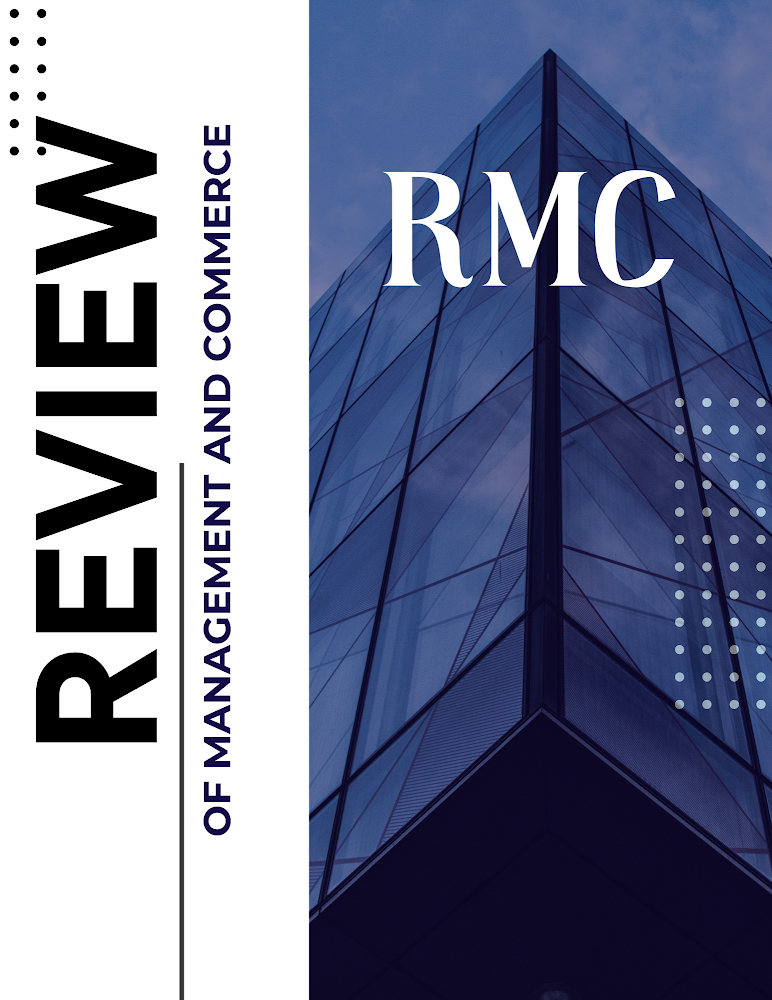Conflict policy
The Review of Management and Commerce (RMC)’ Conflict of Interest policy is formulated to accommodate any circumstance where a certain personal, financial, professional, or other interest detracts from the author’s ability to provide full and unbiased manuscript submission, peer review, editorial decision making, and, or publication. Interactions can be about specific organizations or persons, and parties can be authors, reviewers, or editors.
Disclosure Requirements
Authors:
- All the authors and co-authors shall declare any possible conflict of interest with the journal when sending in the manuscript. This includes but is not limited to the salaries which are paid to employees, research funding, consultation fees, owning shares in a company, patent agreements, receiving honoraria, and serving as an adviser.
- If no conflicts exist, authors should explicitly state: Thus, the author(s) state no competing interests concerning the publication of this article.
- Potential conflicts of interest should be listed at the end of the manuscript in case the article is to be published.
Reviewers:
- It is mandatory that a reviewer declare any possible conflict of interest before they are assigned a particular manuscript. This covers positions such as co-worker or partner where one would not be able to give an impartial verdict in case of a disagreement.
- This means that minor conflicts with authors do not necessarily preclude a reviewer from consideration, but these matters will be taken into account in assessing the merit of a review.
- If a conflict of interest arise based on an issue of great importance, the reviewer should step down from the process.
Editors:
- Any person has the right to reject to work at manuscripts that may cause conflict of interest, whether it is financial or not.
- If a manuscript comes from an editor’s own institution or academic department, then he or she must recuse him/herself and select the guest editor.
- Editors who want to submit their own manuscript should not handle the manuscripts to be reviewed themselves and instead, should assign it to another editor.
Managing Conflicts of Interest
- Authors:
- If there is any conflict of interest it must be disclosed at the time of submission of the manuscript.
- Make sure to report the conflicts of interests in the article so that they can be published.
- Reviewers:
- Any conflict of interest should be declared before the manuscript is reviewed.
- If still in doubt of an impending conflict, then the best action to take is reporting the issue to the editorial office.
- Editors:
- Recuse themselves from handling the manuscripts where a conflict of interest exists.
- Implement policies to manage the conflicts when manuscripts are submitted from their own institution.
- Assign a colleague to manage the editorial process for their own submissions.
The Review of Management and Commerce (RMC) is committed to maintaining the highest standards of integrity and the transparency. By requiring full disclosure of potential conflicts of interest from authors, reviewers, and editors, we aim to uphold the objectivity and the credibility of the research published in our journal


